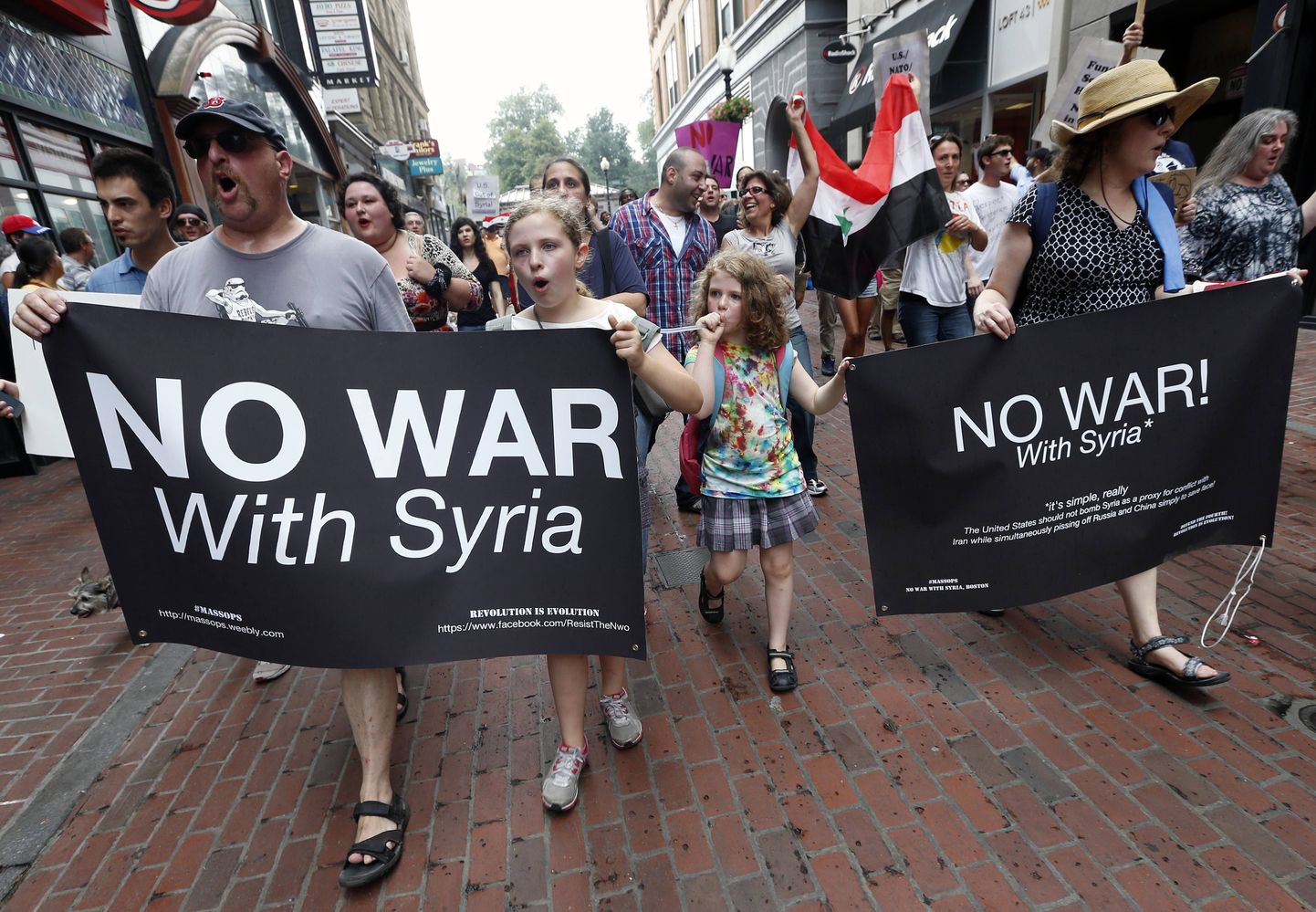
After August 21st, for a brief moment, one may again have gotten the feeling that the Assad regime was facing its Doomsday, with armies of US and European allies intervening in a week and no later. That was... optimistic.

After August 21st, for a brief moment, one may again have gotten the feeling that the Assad regime was facing its Doomsday, with armies of US and European allies intervening in a week and no later. That was... optimistic.
The way the pessimists see it, military intervention by Western allies may bring unpredictable consequences all the way up to WW3, possibly. Public opinion both in Europe and US, well remembering Iraq and Afghanistan, perhaps even Libya, remained unconvinced by Barack Obama’s vow «to not put boots on the ground»; the military intervention initially proclaimed to be strong, grand and short has ended up in search for diplomatic solutions.
Perhaps, in the case of Syria, there is more truth to what the pessimists are saying. Even so, three weeks later, it does seem that blocking use of chemical weapons is turning into a diplomatic coup for Russia. True: in a civil war which has already claimed the lives of over 100,000 people and forced millions into exile, any step towards stabilisation would still have to be called a victory – whoever its initiator. With a watchful and worrisome eye, however, we must now observe the changing roles of main architects of global security – as, perhaps, unfolding after the developments in Syria.
A lot has been written on the reasons why Russia has so forcefully opposed any military intervention in Syria (as by Jüri Maloverjan, on Postimees, September 9th). Russia’s interests have clearly been selfish; to Bashar al-Assad, this has granted the assurance that wherever the West would draw its «red lines», international punitive operations will be excluded due to Russian and Chinese opposition at UN Security Council. The vital importance of Russia’s support for Assad’s regime being the more obvious now that the USA has threatened to intervene without a Security Council resolution: with Moscow at the lead, an agreement by Damascus to subject its chemical weapons to international control was quickly achieved.
So far the agreement is nothing but words; even so, both USA and France are pressurising for corresponding actions. To optimists, it is important to underline that even if Syria indeed yields control of its chemical arsenal, the civil war will not automatically come to an end.
Still, the signal has been sent: successfully, Moscow is implementing diplomatic means – while Washington has postponed congressional vote with Mr Obama left scrambling to justify his militancy. Surely, power lines will not be redrawn with just one conflict. Nevertheless, in the Middle-East, Russia will be gaining a significant advantage over the West and the USA, in the longer perspective adding to Moscow’s clout in confrontations.
Mr Assad’s opponents, as Mr Assad himself, are no democratic forces. Neither is Russia. And it will not be in European and US interests to have undemocratic forces use Russia, as intermediary, in their relations with the West.